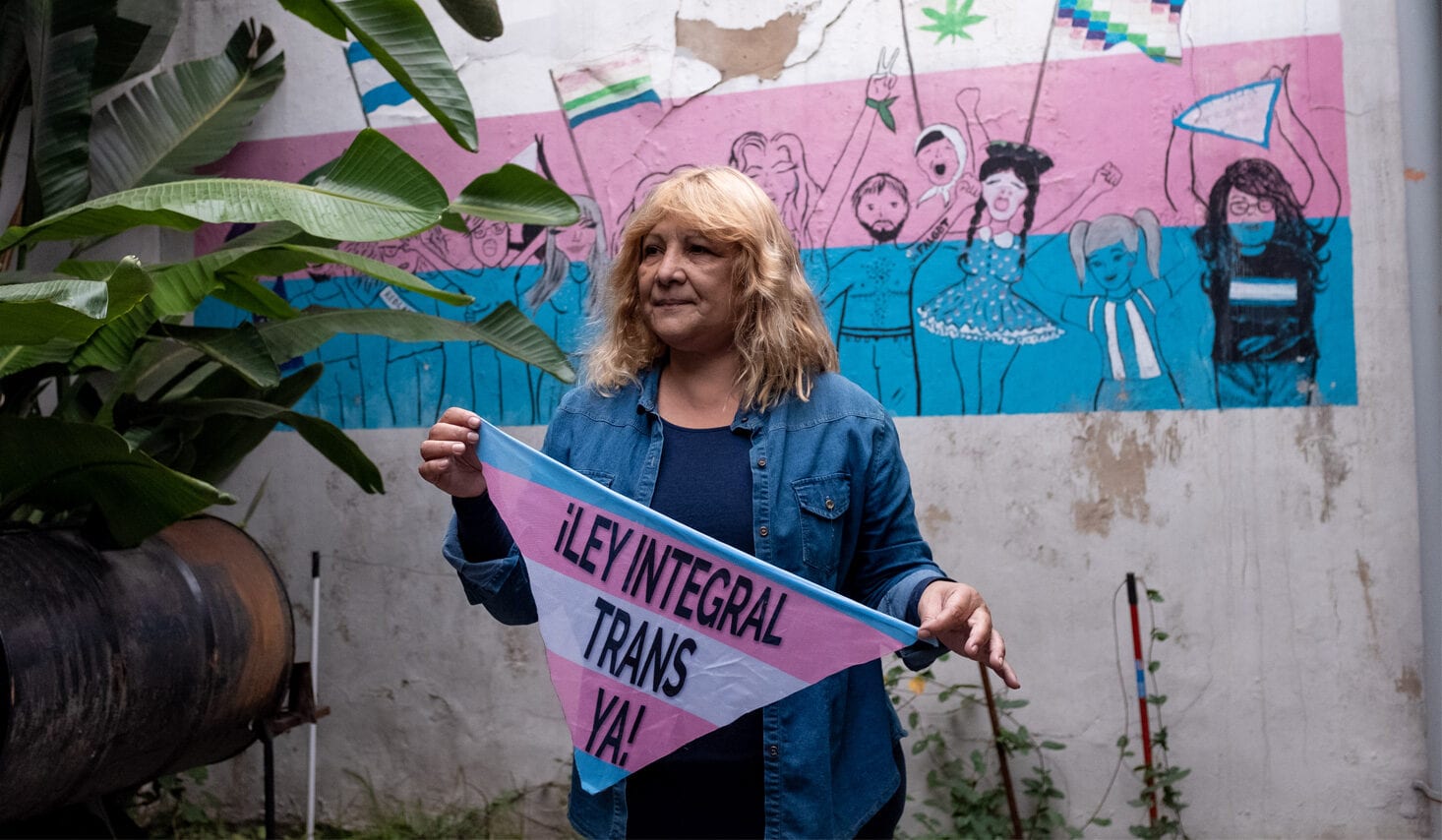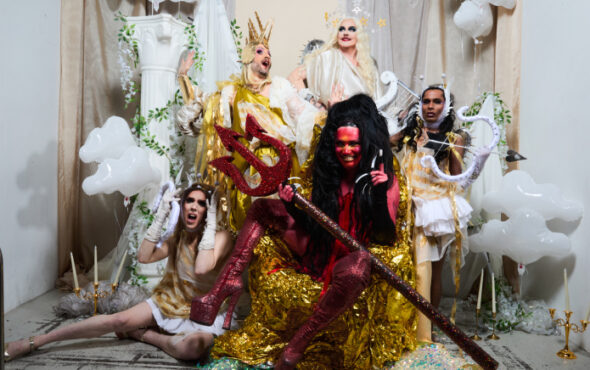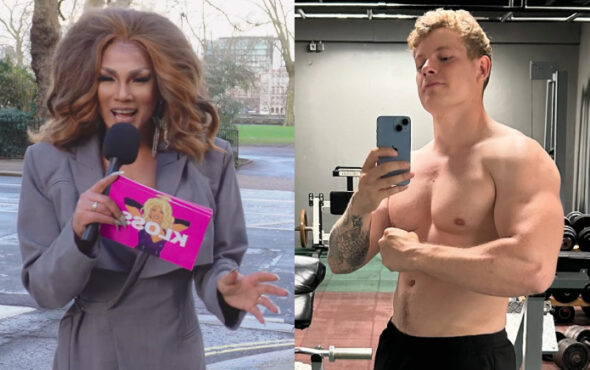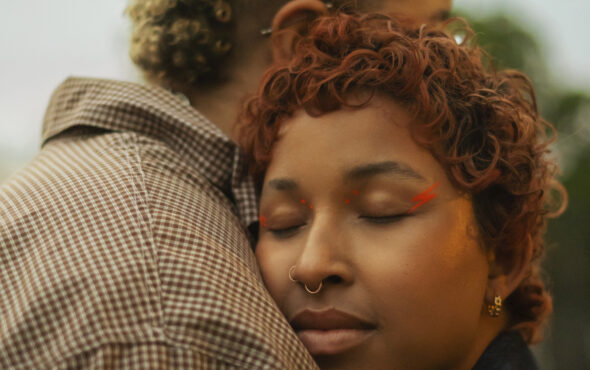
After being thrown into prison in the 1980s, where she was beaten and humiliated, Marcela Romero became an activist and a human rights defender – standing up for the rights of trans people in her native Argentina. In her country, around 90 per cent of people in the trans community live below the poverty line. Across Latin America, HIV prevalence among the trans community is high and the life expectancy of a trans woman is only 35 years old, which is half that of other Latin Americans.
Now aged 57, Marcela has been regional coordinator of the Latin American and Caribbean network of transgender people (RedLacTrans) since 2006. She succeeded in being legally recognised as a woman in 2009, after a decade long battle with Argentina’s courts.
Here, Marcela explains how she is fighting for inclusion, education, work, healthcare and housing for the trans community across Argentina and beyond – and for the right for trans people to be able to choose their own path in life without fear and discrimination. She is calling for comprehensive laws that will protect the rights of the trans community in Argentina and ensure equality – from childhood through to adulthood.
Marcela’s story
I come from a generation in the 1980s when repression and exclusion were very common in my country, Argentina. The military dictatorship was very strong – so almost all trans women of my generation were detained and imprisoned, including myself. In prison, we were mistreated, beaten, humiliated.
I always asked myself, “why am I being taken to jail? What did I do to be taken to jail?” The truth is that I never knew why I was taken prisoner. I never felt different. But I think our bodies are political. It happens in all the countries where there is dictatorship and repression towards the LGBT+ community.
I started my activism work when I left prison. I started to show myself as an empowered trans woman, who decides what she wants with her body and her life. For me, the ability to choose is the main thing – to live in a country where there is not only democracy but where there are also rights.
A death penalty for trans women
I always say that in Latin America there is also a death penalty for trans women. The life expectancy of a trans woman in Latin America is only 35 years, which is half that of other citizens. Many trans women in Argentina die in destitution. We die in hotel rooms and in hospital wards.
Trans women are dying in silence. When we die, no one removes our body. This year, I know of seven or eight trans women between 20 and 25 years old died in Argentina as the result of violence. There is a terrible hatred towards these women. The absence of the State and rights is what is killing us, little by little. Where there are no rights, one cannot plan a life goal.
HIV is part of this silent death that trans women have to face. HIV prevalence among trans women is 49 times higher than among the general population. I experienced HIV among people I have worked with. In the nineties, I did sex work. Every time I went to work, I would ask about a fellow sex worker and they would tell me “she left”. It was almost every day. I saw it and lived it – the death of my colleagues.
Trans legal rights are needed
Many people were not able to access HIV treatment in the nineties because of discrimination. We were not within the World Health Organization’s strategic plans because our gender identity was not respected. We were just men who had sex with other men or gay men.
In countries where there are laws, trans people can choose how to live. Uruguay is one of these countries. In Uruguay, there are more elderly trans women, because there have been progressive laws that protect trans people – from sex work to retirement.
The challenge we have in Argentina is introducing a comprehensive trans law – like the law that was passed in Uruguay and is being debated in Spain at the moment. I think we have to work not only to generate more rights but also to generate equality – from childhood and adolescence to adulthood.
Pride and poverty
I am Argentinian. I am Latin American. I am in a space of popular, humanitarian trans women. We are humanitarian and community leaders in the daily life of our colleagues, and that makes me very proud to be part of this struggle. We reach the community and we know what is missing in that community.
In Argentina, around 90 per cent of people in the trans community live below the poverty line so the issue in our region is poverty, social exclusion and forced migration for trans people. We are demanding inclusion, education, work, housing that many other communities already have.
For me, trans pride is to be able to live as we want to live. We are grandmothers, aunts, mothers, sisters; we are very clear about how we want to live. We want to continue giving love without fear that our children will be taken away from us.
Pride is political
For me, Pride in Argentina is a very political word. It is to continue vindicating what we have achieved in Argentina. In Toronto, Canada, I received a Pride award. I was invited to Canada to take part in the Pride march and I saw that, in other countries, the march is a day of celebration and joy. I think that this does not happen in Latin America. We cannot celebrate yet, because the biggest mortality in our region of trans women is HIV and hate crimes.
When I think about how the world is with the access to rights – that women are mutilated in Africa, that trans women are beaten to death in the street or die in the care of a health service – I hope that trans rights can be debated and that the laws can be changed, and not just in my country.
I would first change education and culture. There are many cultures and education systems that encourage the subjugation of women. We are going to change when we have education without stigma and discrimination.
Future hopes
I hope that trans people will have rights from childhood and adolescence and that they can choose what their life project is going to be. I hope that the new generations can build more diverse political spaces than we could.
I hope that a trans child, a trans girl will not be expelled from her home, that her family will love her as she is, that she will finish primary and secondary school and enter the labour market, and that she will not fall into sex work and prostitution.
I want this young woman to have her own path – like any other person. Of course, she will have problems like everyone else, but she will have the support of her family and the State.
Frontline AIDS has been at the forefront of the world’s response to HIV and AIDS for 27 years, working with community groups in countries most affected by the global AIDS epidemic.


